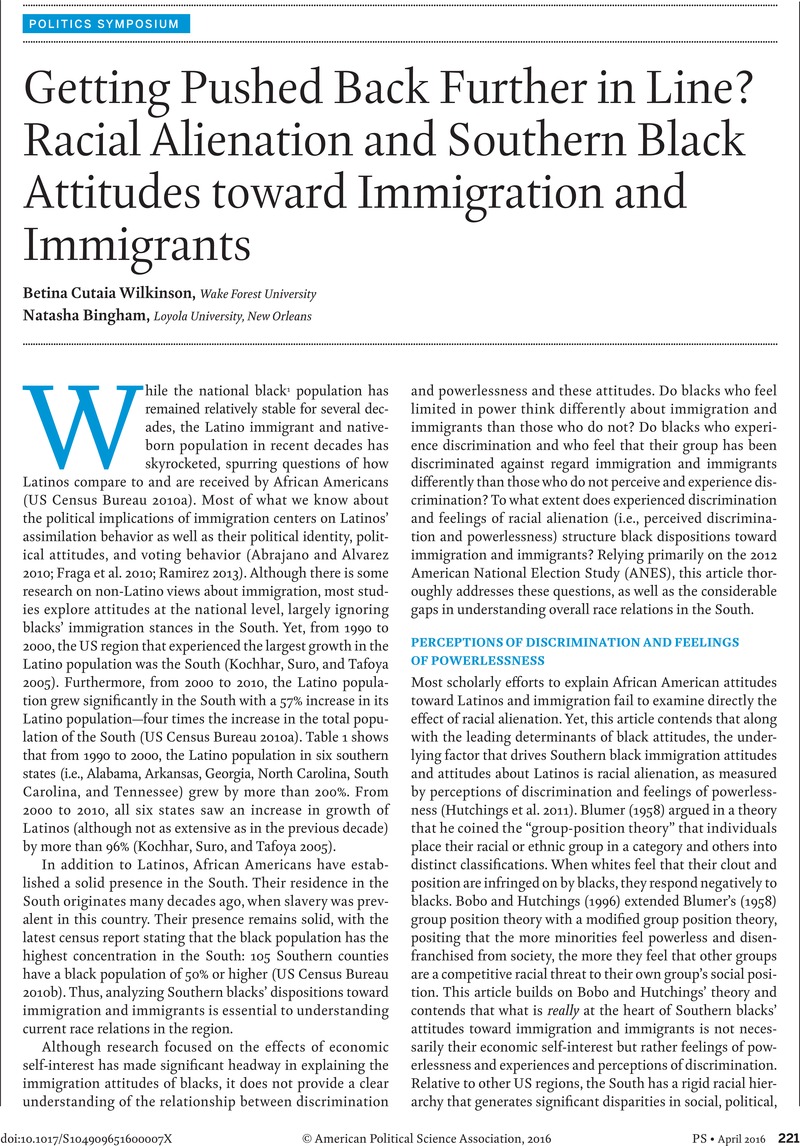Crossref Citations
This article has been cited by the following publications. This list is generated based on data provided by Crossref.
Marrow, Helen B.
2017.
On the Line: Latino Life in New Immigrant Destinations after 2005.
Contemporary Sociology: A Journal of Reviews,
Vol. 46,
Issue. 3,
p.
265.
Nteta, Tatishe M.
and
Rice, Douglas
2021.
Driving a Wedge? Republicans, Immigration, and the Impact of Substantive Appeals on African American Vote Choice.
Political Research Quarterly,
Vol. 74,
Issue. 1,
p.
228.
Yong, Jose C.
Jia, Lile
Ismail, Ismaharif
and
Lee, Peiwei
2021.
Conditional Love: Threat and Attitudinal Perceptions of Immigrants Depend on Their Instrumentality to Locals’ Basic Psychological Needs.
Personality and Social Psychology Bulletin,
Vol. 47,
Issue. 12,
p.
1686.
Wilkinson, Betina Cutaia
Michelson, Melissa R.
and
Webster, Alexis
2021.
Sports elites, counter‐stereotypical statements, and immigration attitudes.
Social Science Quarterly,
Vol. 102,
Issue. 6,
p.
2996.
Mclaren, Leann M.
2025.
Race, immigration, and Black intergroup politics.
Politics, Groups, and Identities,
Vol. 13,
Issue. 1,
p.
86.



